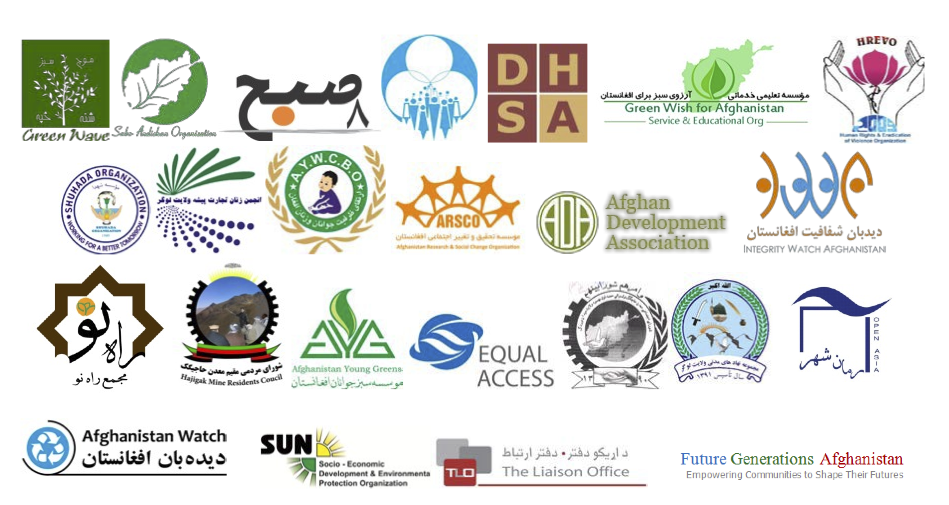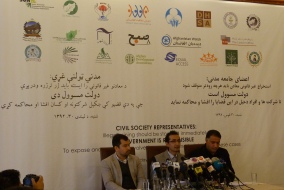
Members of the Natural Resources Monitoring Network urged the Afghan government to take strong measures against individuals and companies involved in illegal mining. Thousands of tons of minerals such as coal, chromite, and a variety of precious and semi-precious stones, lead, fluoride, talc, marbles, rocks, sand and more are extracted illegally on a daily basis. Six months ago, the Ministry of Mines and Petroleum (MoMP) released a list of 1400 companies and individuals involved in illegal mining activities across the country. However, the government has taken no serious action against those involved in looting mineral resources. The Parliament is also silent about illegal extraction and has not held the government accountable for not taking serious action to stop illegal mining.

Natural resources of Afghanistan are the collective wealth of all Afghans. However, the illegal extraction of minerals such as talc, coal, and chromite has instead become a source of enrichment for a small number of powerful people. Talking at the press conference Javed Noorani, Natural Resources Monitoring Network, said, “The revenues of illegal extraction of talc, coal, and chromite in large quantities go to powerful people who operate in total impunity.” Illegal extraction is becoming the norm and is marginalizing large populations leaving them in poverty. Noorani added, “If not stopped, illegal mining will push us towards the kind of protracted conflict we’ve seen in the Congo.”
After countless advocacy efforts from civil society, the MoMP released a summary of 1400 individuals and companies that it had compiled a year ago. The government has disclosed a brief summary but withheld the names of the powerful people involved, instead simply naming some companies and individuals who are seen as politically irrelevant. Talking at the event, Ebrahim Jafari, Natural Resources Monitoring Network representative said, “The government has not even taken action against those in or around the capital city, Kabul, while there are 710 cases of illegal extraction in this area.” He added that “It is surprising that no one has taken notice of the list, even the Afghan Parliament is silent on this critical issue.”
Civil society representatives demanded that the government close down all illegal extraction starting with those commodities that have strategic significance and are exported outside the country. The culprits must be brought to justice. Talking to the media, Tawab Stanikzai, Natural Resources Monitoring Network representative said, “The government must share a timeline for closing down the illegal mines and share a report with the Parliament, and the public, every six months to avoid the ‘resource curse’ phenomenon taking hold in Afghanistan.”
About Natural Resources Monitoring Network
The Natural Resources Monitoring Network (NRMN) aims to facilitate effective coordination, advocacy, and monitoring efforts of civil society organizations and individuals in the extractive sector. The goal is to ensure peaceful and sustainable utilization of natural resources of Afghanistan. The NRMN founded on 19 December, 2012. The network includes more than 30 important gender-oriented Afghan civil society activists and organizations.

